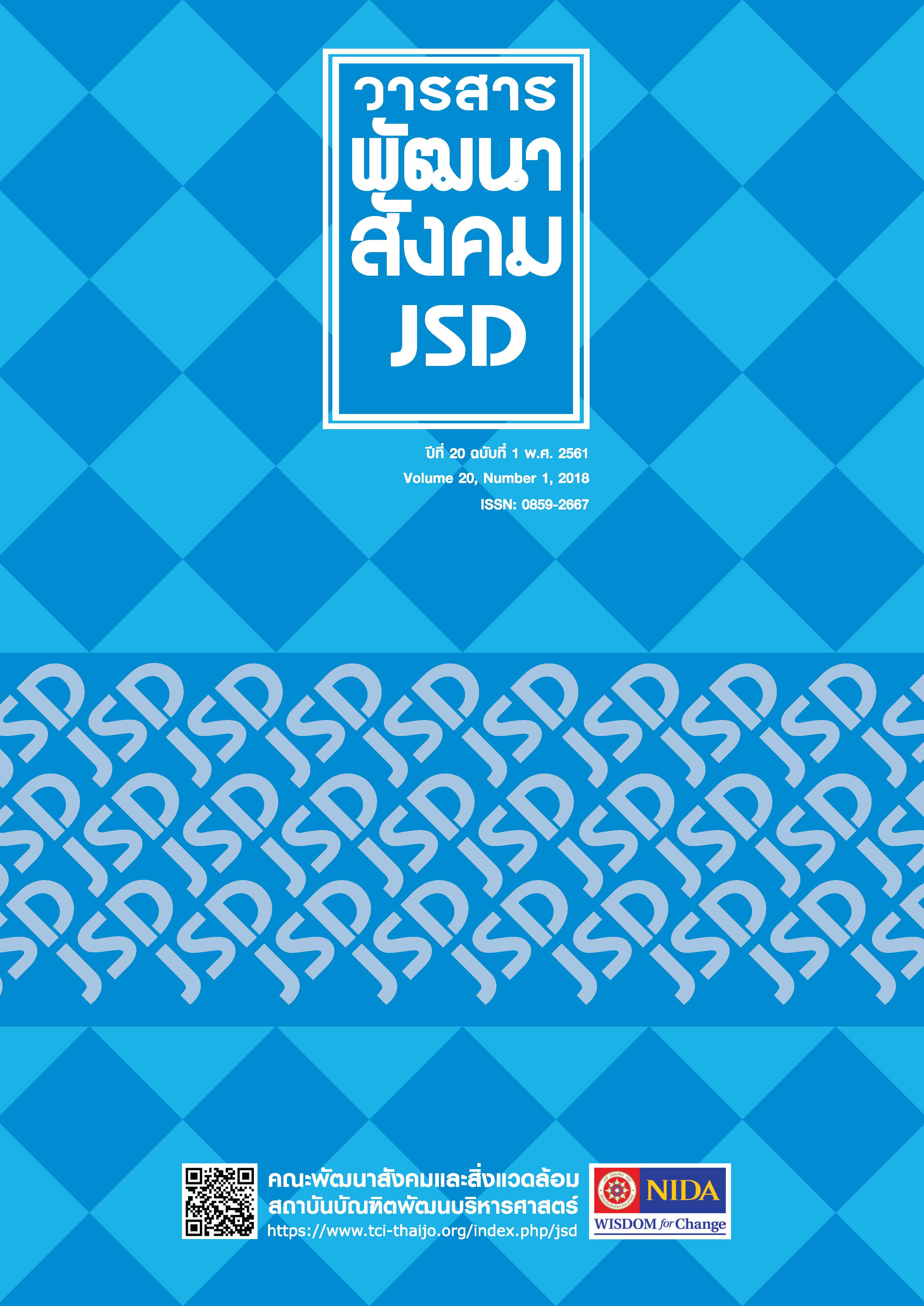A Comparative Study of Education Development Policy between Thailand and China
Main Article Content
Abstract
The objectives of this research are 1) to study the policy on educational development in Thailand and China during the past 10 years 2) to study the similarities and differences between Thailand and China’s policy on educational development. This research is based on qualitative research approach including documentary study, focus group, in-depth interviews of 18 key-informant. The research result shows that Thailand and China’s education are influenced by Eastern culture, especially from Confucius philosophy. Therefore no matter at individual, family or national level, Thailand and China both place a lot of importance on education. However, due to population, educational resources, and differences in values, China’s emphasis on importance of education is higher. Chinese families will do whatever it is possible for their descendant’s education, and their children are highly determined and hardworking to improve their way of life. Chinese students focus on studying well, meanwhile, Thai places importance on both knowledge and morality. Educational management in Thailand and in China are bureaucratic with centralized authority and linear hierarchy. However, Thailand allows every sector of community to participate more, China’s educational management, on the other hand, has higher efficiency, unity and continuity, but lacks participation of the people in society. China’s education emphasizes more on specific expertise in certain fields, whereas Thailand’s emphasizes more on well-rounded knowledge than to be an expert in particular fields. During the past 10 years, Thailand has created many talents with international vision and perspectives in fields of management, social studies and humanities. By contrast, China has created experts in the fields of mathematics, physics and chemistry. These experts have become crucial human resource to develop its economy, society and a number of innovations.
Article Details
References
2. Ministry of Education. Basic Education Core Curriculum 2008. Retrieved October 15, 2016 from http://math.ipst.ac.th/wp-content/uploads/2015/PDF/Curriculum%202551.pdf.
3. Worratepputtiphong, T. (1997). Determining and analyzing public policy: Theories and Applications. Bangkok: [In Thai]. Publisher SEMA Dhamma.
4. Rattanasak, T. (2012). Public policy. Chiang Mai: [In Thai]. Kanungnit Printing.
5. Sirisampan, T. (1996). Introduction to Public Policy.Bangkok: [In Thai]. Chulalongkorn Publishing House University.
6. Siritrungsri, P. (2010). The future of Thai education 10 – 20 Years. [In Thai]. The Secretariat of the Council of Education Ministry of Education.
7. Wasri, P. (2006). Public policy process. Bangkok: [In Thai]. National Health Foundation.
8. Anumarnrajaton, M. (2009). Public policy. Bangkok: Exponent.
9. Ketsuwan, R. (2007). Public policy. Bangkok: Borpit Printing.
10. Chantharason, W. (2011). Theory of Public Policy Implementation. Bangkok: Prikwarn Graphic.
11. Tamrongtanyawong, S. (2003). Public policy. Bangkok: Semadham.
12. Washikajonh, S. (2006). Public policy. Bangkok: Thanedworn.
13. Office of the Minister. National Education Act, 2542 Amended (No. 2) 2002 (No. 3) 2010. Retrieved October 15, 2016 from http://www.onesqa.or.th/upload/download/file_975dff739ff5a909753b8bff237c78fa.pdf.
14. The Secretariat of the Council of Education Ministry of Education. 2015. Monitoring and Evaluation of educational management in accordance with the Government's Education Policy 2013. Bangkok: Prikwarn Graphic.
15. The Secretariat of the Council of Education Ministry of Education. 2009. Design and Development of information systems and data processing systems for national educational management assessment. Bangkok: Plern Studio.
16. The Secretariat of the Council of Education Ministry of Education. (draft) Framework for National Education Plan 2060-2575. Retrieved October 15, 2016 from http://www.moe.go.th/moe/upload/news20/FileUpload/45159-6247.pdf.
17. Office of the National Economic and Social Development Board. National Economic and Social Development Plan No.12 (2560 - 2564). Retrieved January 5, 2017 from http://www.ratchakitcha.soc.go.th/DATA/PDF/2559/A/115/1.PDF.
18. Thai Business Information Center County Information. Retrieved May 15, 2016 from http://www.thaibizchina.com/thaibizchina/th/about-china/country/
19. Thai Business Information Center. China Cabinet Announces Guidelines for Deepening China's Annual Economic Reform 2015. Retrieved 15 May 2016 from http://thaibizchina.com/thaibuachaina/th/china/-economic-business/result.php?SECTION_ID=442&ID=1559


